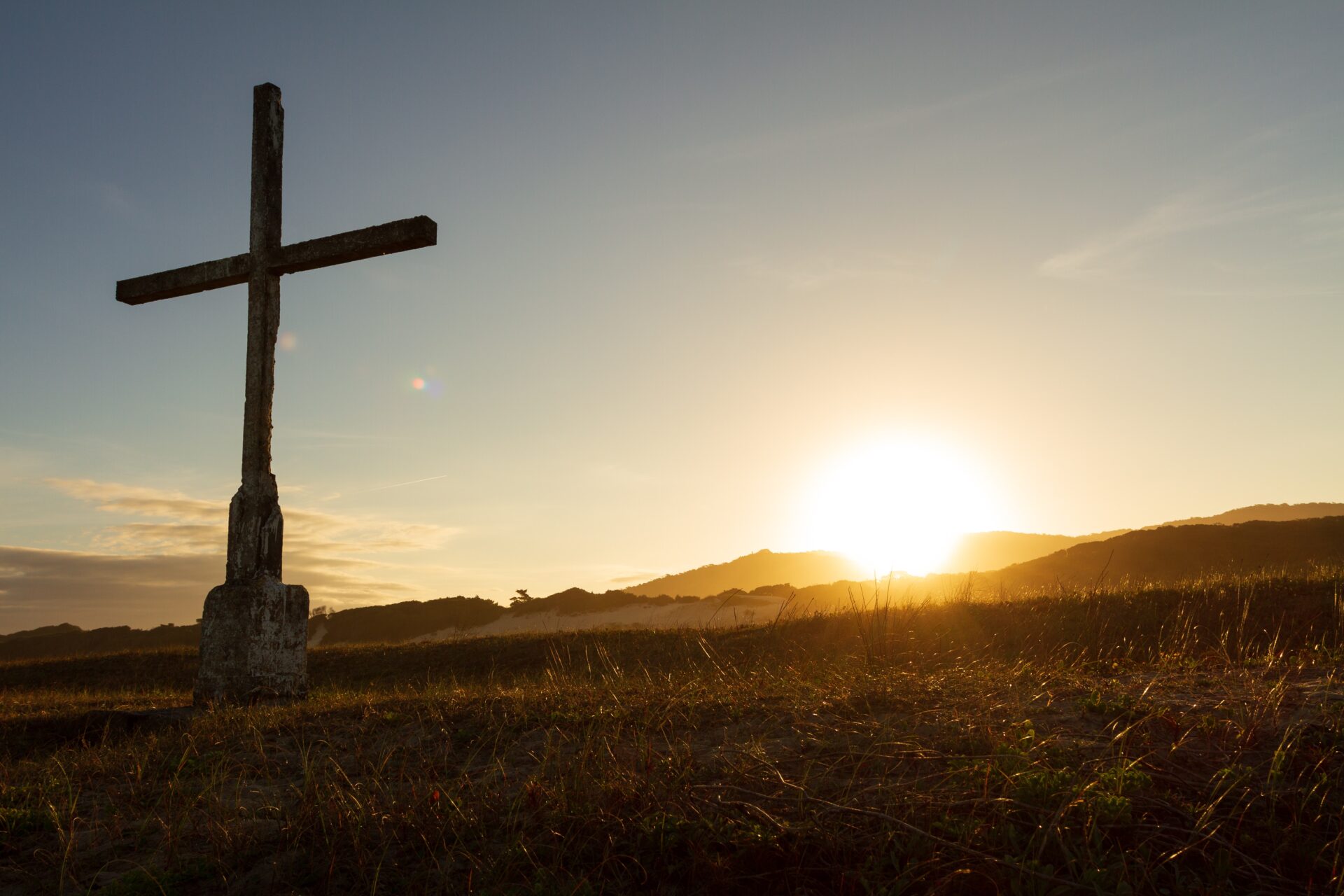
Cross before the setting sun.
Photo by Cristiano de Assuncao on Unsplash.
Wednesday in Holy Week and indigenous implications
April 5, 2023
Holy Wednesday is one of the days in Holy Week that we don’t seem to hear about as much. Yet, the darkness it represents is symbolized in Native American history.
According to the University of Melbourne’s helpful guide to Holy Week, “this darkness symbolizes the abandonment of Jesus by his disciples, and anticipates the anguish and tragedy of Good Friday later on in Holy Week.” During the Cherokee Trail of Tears, to say darkness and abandonment were main themes is an understatement. Those Cherokees who made the journey, including many Christian Cherokee souls, underwent forced relocation by a government and much of the citizenry that considered them a burden, alien, dangerous, violent, lazy, and stupid. Sound familiar? And yet, the Cherokee preceded their European colonizers by means of their own natural citizenship of this land. Oral tradition has it that my ancestors and others sang “Amazing Grace” in Cherokee during this journey—a journey of seeming desertion by Jesus in their greatest time of need.
As more and more people are coming to realize, the imposition on American Indians during the 19th and 20th centuries—extending even into the present in some cases—has been a huge source of frustration and stereotypical behaviors and actions. As Robert Allen Warrior has noted, “Liberals and conservatives alike have too often surveyed the conditions of Native Americans and decided to come to the rescue, always using their methods, their ideas, and their programs. The idea that Indians might know best how to address their own problems is seemingly lost on these well-meaning folks.”[i] How people choose to deal with their own gloom and loss is very much their own affair. One can be of help, yet one must first define exactly what that means and how to provide such “help.”
One of my great, great, great aunts was pregnant on the Trail of Tears. Imagine being with child on a mandatory 430-mile walking trek at gun and bayonet point to an unfamiliar land during one of the worst winters imaginable. Would you consider yourself in a dark place? She, her family, friends, and neighbors, spent Christmas God knows where and how. It begs the question as to how they, as documented Christians, spent their upcoming Easter in the new Indian Territory. Army officer Edward Deas was the commanding officer of their (Bell) detachment, and his notes of the journey have never been recovered. What did Lent mean to them? Holy Week? Easter? Did they have a sense of resurrection at this point? Was their sense of abandonment outweighed by their faith in Jesus Christ? We do know that they lost people on the way. How, amid this distress, did they deal with that? Certainly, “help” didn’t come to them from the army!
Holy Wednesday is one of the days in Holy Week that we don’t seem to hear about as much. Yet, the darkness it represents is symbolized in Native American history.
What about us? Hey, we just survived a pandemic. That makes us certified conquerors. Or are we more than that? Regardless, we are here at a time and place in history to celebrate the holiest of weeks in the calendar year. Hopefully, as we anticipate the jubiliation of Resurrection Sunday, we won’t strip others of their methods, ideas, or programs. There’s been quite enough of that. Maybe we will be in a position in our personal or professional life to help others cope with darkness and the sense of forsaking. It’s a Christian thing.
The feminine mystique of that third-great aunt—whose name happened to be Mary—filled me with awe as I examined this passage of Mark in an indigenous translation of the New Testament: “When Creator Sets Free (Jesus) returned to life on the first day of the week, he showed himself to a woman, Strong Tears (Mary) of the village of Creator’s High Lodge (Magdala), the one he had set free from seven evil spirits.” (Mark 16:9 FNV). Darkness and despondency tend to give way to the familiar and comfort-bearing. Victory can rest in the heart of the one who truly believes.
Holy Wednesday is that middle period between the burned ashes of Palm Sunday and the peace lilies and washed-clean restoration of Easter. It can be a day of contemplation and prayers of hope for relief from the darkness we all face when we sense God not working in our lives, a God who often doesn’t seem interested in doing that work without our permission. I have personally found that, for me to get my donkey out of a ditch on the darkened trail, I have to believe that the Great Spirit will help make that happen. Otherwise, I might as well go back to the Stations of the Cross and start all over again.
Rev. Bryan D. Jackson is an American Baptist minister and a member of the Cherokee Community of Puget Sound and the Mt. Hood Cherokees, both satellite communities of the Cherokee Nation. He lives on Vashon Island, Washington and is the author of Chattahoochee Rain: A Cherokee novella.
The views expressed are those of the author and not necessarily those of American Baptist Home Mission Societies.
[i] Warrior, Robert Allen. (1996). Native and Christian: Indigenous Voices on Religious Identity in the United States and Canada. (James Treat, Ed.). New York: Routledge, p. 34.


